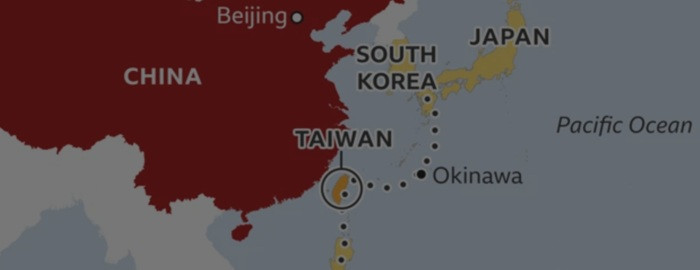
BEIJING/TAIPEI: The contentious issue of Taiwan’s status in the international community has once again come under the spotlight, with the Mainland Affairs Council (MAC) of Taiwan vehemently countering Beijing’s assertions. At the heart of the dispute lies the interpretation of United Nations Resolution 2758, which the People’s Republic of China (PRC) claims affirms its authority over Taiwan—a claim Taipei and much of the international community strongly refute.
During the 14th National People’s Congress, Chinese Minister of Foreign Affairs Wang Yi reiterated Beijing’s long-standing stance that Taiwan is an inseparable part of Chinese territory. He argued that historical documents, such as the Cairo Declaration and the Potsdam Declaration, validated China’s sovereignty over Taiwan following Japan’s surrender in 1945. Furthermore, he insisted that UN Resolution 2758, passed in 1971, settled the matter of China’s representation in the UN, including Taiwan, leaving no room for interpretations like “two Chinas” or “one China, one Taiwan.”
Taiwan’s MAC swiftly responded, debunking Wang’s claims and emphasizing that Resolution 2758 does not address Taiwan’s status, let alone designate it as part of the PRC. The MAC underscored that Taiwan is a sovereign and independent country, with a democratically elected government representing its 23.5 million citizens. The council accused Beijing of deliberately distorting the resolution to enforce its “one China” narrative and suppress Taiwan’s international presence.
The roots of this conflict can be traced back to the post-World War II era. Following Japan’s surrender in 1945, Taiwan was returned to Chinese control under the Republic of China (ROC). However, the Chinese Civil War soon erupted, culminating in the establishment of the PRC on the mainland in 1949 and the ROC retreating to Taiwan. The island then evolved into a vibrant democracy, while the mainland maintained an autocratic regime. This divergence in governance further fuelled the question of Taiwan’s status.
The international community has long grappled with balancing these competing narratives. In 1971, UN Resolution 2758 recognized the PRC as the legitimate representative of China in the United Nations, effectively expelling the ROC. However, the resolution did not explicitly address Taiwan’s status or grant the PRC authority over the island. Instead, it simply resolved the matter of which government represented “China” at the UN.
Taiwan has consistently rejected claims of PRC sovereignty, highlighting its democratic system and economic achievements as evidence of its distinct identity. The MAC, alongside Taiwan’s Ministry of Foreign Affairs, points out that numerous Western democracies have affirmed that Resolution 2758 pertains solely to China’s representation in the UN, not to Taiwan’s status. For instance, the US Department of State has repeatedly clarified that the resolution does not preclude Taiwan’s participation in international organizations.
Other nations, including Australia, Canada, and members of the European Union, have echoed this stance. Resolutions from the European Parliament have called for enhanced cooperation with Taiwan and emphasized its importance as a democratic partner in the Indo-Pacific region. These affirmations challenge Beijing’s attempts to redefine the “Taiwan issue” as an internal matter.
Over the years, Beijing has employed a mix of diplomatic, economic, and military tactics to isolate Taiwan internationally. For instance, the PRC has leveraged its economic clout to persuade nations to sever official ties with Taipei. In 2018, El Salvador and the Dominican Republic switched diplomatic recognition from Taiwan to Beijing under pressure, following similar moves by Panama in 2017.
- US Senate Introduces Legislation to Solidify Its Stand on Tibet-China Conflict
- Chamisa: It’s time for clarity not ambiguity
- China's Presence in Cuba Poses Huge Threat to US
- China celebrates National Day, amid heightened Sino-Zim relations
Keep Reading
Moreover, Beijing has obstructed Taiwan’s participation in international organizations. The island’s exclusion from the World Health Assembly (WHA) during the COVID-19 pandemic drew global criticism, with many arguing that Taiwan’s expertise in handling the virus was essential. The PRC justified the exclusion by invoking Resolution 2758, further illustrating its misinterpretation of the document.
Beijing’s efforts to undermine Taiwan’s sovereignty extend beyond diplomacy. In recent years, PRC has intensified military activities near the Taiwan Strait, conducting frequent air and naval exercises. These actions are seen as both a demonstration of force and a means of intimidating Taipei. According to Taiwan’s Ministry of National Defence, Chinese military aircraft breached Taiwan’s air defence identification zone (ADIZ) over 950 times in 2022 alone.
Despite mounting pressure, Taiwan has demonstrated remarkable resilience. Its economic strength, driven by industries such as semiconductor manufacturing, has made it a critical player in global supply chains. Politically, its vibrant democracy continues to garner admiration, with international organizations ranking Taiwan highly in terms of freedom and transparency.
However, Taiwan faces significant challenges in its pursuit of greater international recognition. Beijing’s hybrid warfare, which combines military intimidation, disinformation campaigns, and economic coercion, seeks to erode Taiwan’s global standing. The PRC’s attempts to rewrite international norms, framing Taiwan as an internal issue, aim to exclude the island from forums where its voice is crucial.
The ongoing dispute over Taiwan’s status underscores the complexity of cross-strait relations and the limitations of international law in resolving such conflicts. While Beijing continues to claim historical and legal justifications for its sovereignty over Taiwan, Taipei and its allies highlight the island’s democratic identity and international contributions.
Efforts to resolve these tensions require pragmatic dialogue and a commitment to maintaining peace in the region. The international community, particularly democratic nations, must uphold the principles of sovereignty and self-determination while countering Beijing’s disinformation. By doing so, they can support Taiwan in its quest for meaningful participation on the global stage, ensuring that its voice is not drowned out by coercion and misrepresentation.
Taiwan’s rejection of China’s UN claim is not just a defence of its sovereignty but a broader assertion of its role as a responsible and democratic member of the international community. The challenges it faces are formidable, but its resolve remains unshaken.







